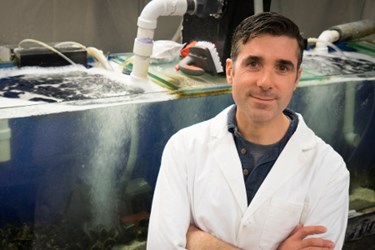Oyster-Inspired Superglue Could Work Underwater — And In Biomedical Applications

Inspired by the biological structure of oysters and mussels, scientists have developed an adhesive that works even in wet conditions. Boiling Point, an intellectual property broker, plans to commercialize the wet-setting glue for biomedical applications.
According to an article published by Nature, natural polymers are a growing trend in the technology industry, and recent research suggests that a new generation of glues, structural components, and “smart” materials will be inspired by organic sources.
Jonathan Wilker, a chemist from Purdue University and developer of the new underwater glue, based his technology on his years of intensive research of the adhesives that allow oysters and mussels to adhere to rocks and maintain their bonds underwater.
The key to mussel glues, said Wilker, lies in their unusual protein molecules and specific modifications that allow the protein chains to crosslink and set in the water. Because harvesting the glue directly from animals was not feasible for large-scale needs, Wilker and his team sought a synthetic design that mimicked the chemistry found in animals.
According to Wilker, the synthetic mimic approach also allows developers to tailor the glue to suit individual environments and needs.
“A lot of the chemistry involved in the animals’ adhesive is protein-based, but no one is going to be able to make a complicated protein for large-scale applications,” said Wilker in a Purdue Research Foundation (PRF) news story. “So we are substituting simple polymers for proteins while maintaining other aspects of the adhesive chemistry.”
Though some adhesives exist that work in wet conditions, Wilker claims his team’s design creates a stronger bond, “better than superglue.”
Last year, the Purdue announced a partnership between The Purdue Foundry, Purdue Technology Center of Southeast Indiana and Boiling Point that would market innovations developed at Purdue University.
In an earlier PRF news story, Michael Pattison, CEO of Boiling Point, said that adhesives effective in wet conditions meet a critical need in the adhesive industry that his company was eager to meet.
“Boiling Point is aggressively introducing the adhesive and its unique properties to the commercial and medical industries,” he said. “Our goal is to find existing companies or create new companies that have a variety of needs for this adhesive. We will negotiate with those companies to create licensing deals, taking the quickest path to market.”
In his interview with Nature, Wilker said that biomedical applications for his technology included body tissue suturing and possibly even broken bones.
During a presentation about the adhesive’ medical potential, Wilker remarked, “Wouldn’t it be better if we could just glue you back together and if we could put sutures out of business?”
Image credit: Purdue Research Foundation
